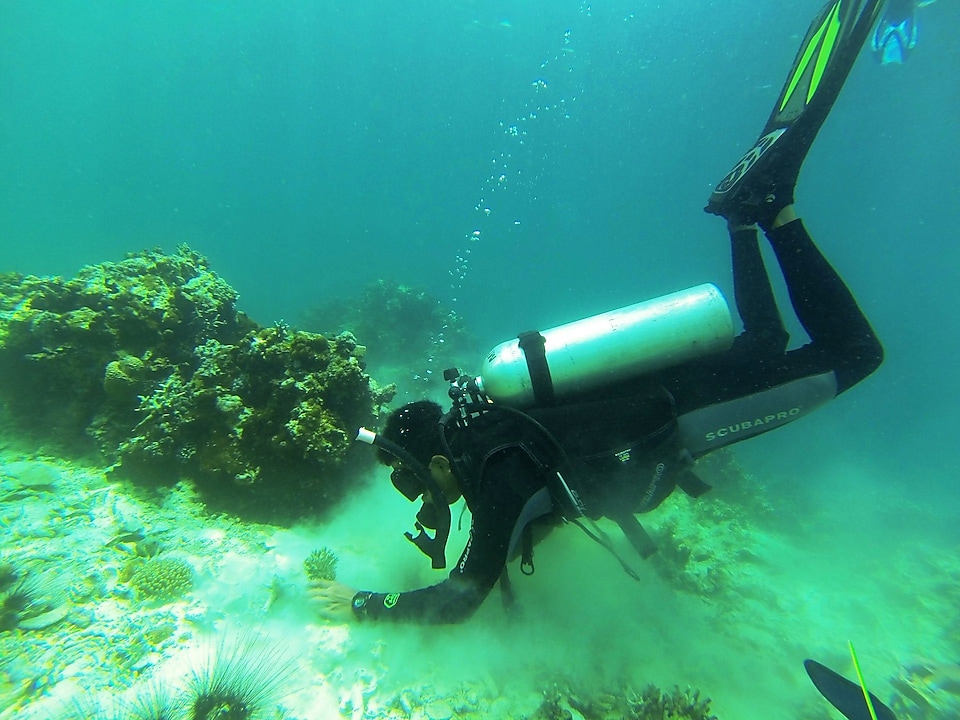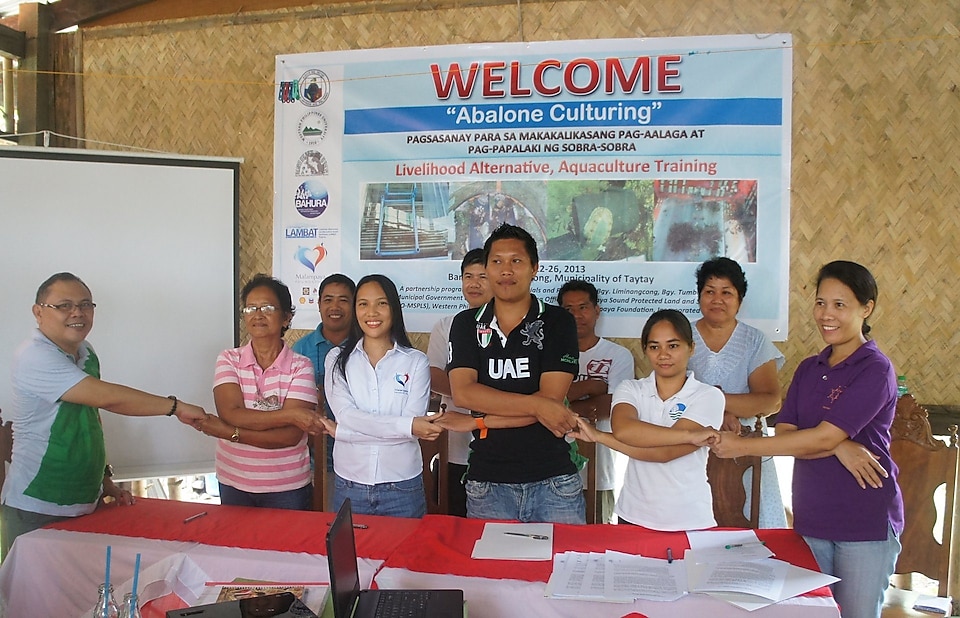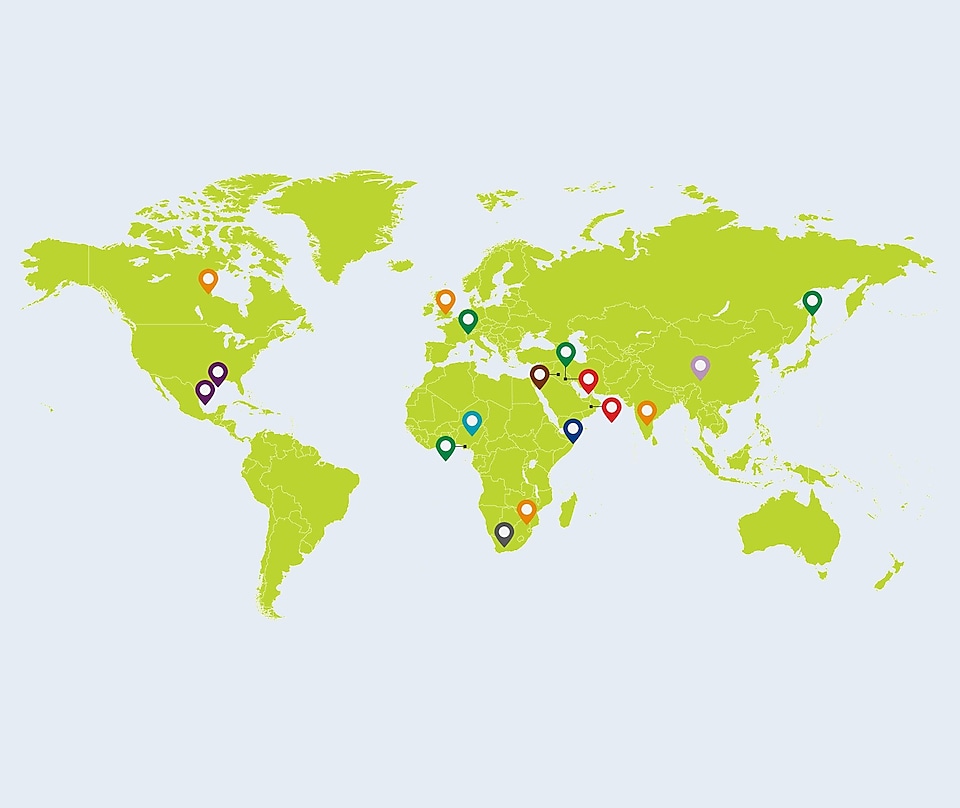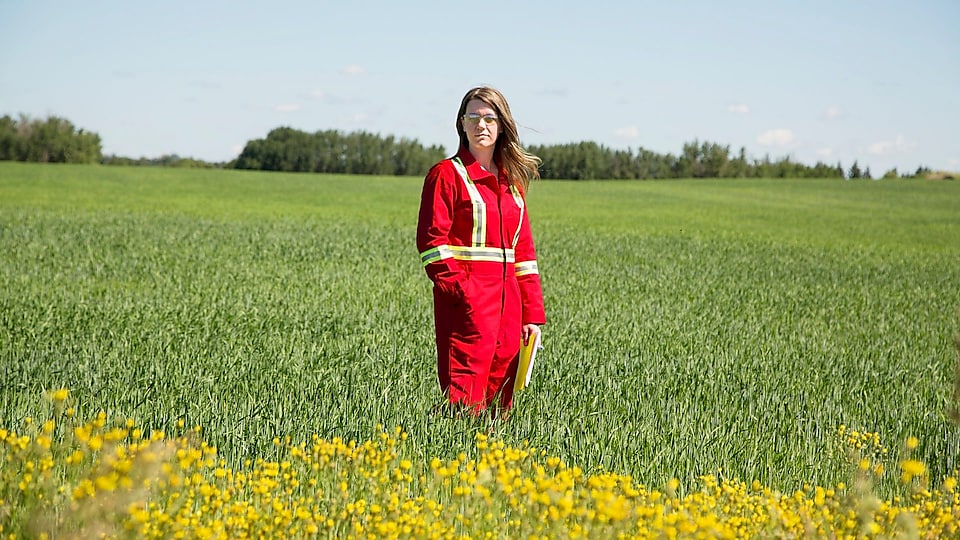
Conserving the Coral Triangle
The Shell-supported Malampaya Foundation is empowering local communities to help to conserve one of the world’s most biodiverse marine environments.

The Malampaya Deep Water Gas-to-Power project off the coast of Palawan in the Philippines operates in one of the most biologically-diverse areas of the world. It is known as the Coral Triangle.
This region, which stretches from the Philippines to New Guinea, is home to more fish and coral species than anywhere else on the planet.
But these are under threat.
Natural phenomena such as storms can destroy the corals. At the same time, increasing urbanisation in coastal areas and poor waste practices compound pollution and can lead to the harmful build-up of silt. One of the biggest threats to the coral is over-fishing and illegal fishing through methods involving dynamite and cyanide.
Now a programme founded and implemented by the Malampaya Foundation, of which Shell Philippines Exploration (SPEX) B.V. is a member, is helping local communities to conserve and manage local marine resources, while simultaneously enhancing livelihoods. This is known as an integrated ‘ecosystem services’ approach.
Setting aside areas for protection and rehabilitation
Working with communities, local governments and agencies, the Foundation has helped to establish and strengthen the management of Marine Protected Areas (MPAs), which communities help to enforce and protect. Some fishing areas, for example, are now set aside as protected areas where fishing is prohibited to help rehabilitate habitats and regenerate fish stocks. Fishermen can still operate in other areas but on a restricted basis and under the careful monitoring of a group in the village.
The marine environment is regularly monitored and “reef watch teams” monitor the health of coral reefs. These teams include local fishermen and other villagers who have been trained through the Foundation as licensed scuba divers and reef checkers. They monitor new coral nurseries, where rescued coral fragments have been moved to elevated nursery beds to help them recover.
Nonetheless, many challenges confront the programme such as continuing encroachment and illegal activities.
Providing alternative livelihoods
With restrictions on fishing, the Foundation is helping local communities identify and adopt alternative livelihoods and sources of income.
Coastal communities are recipients of community-based skills training in different trades to help spur employment and self-employment.
Families are also boosting their income through improved animal husbandry skills and livestock raising. For decades they were raising pigs, chickens and goats using traditional methods. Now through the foundation they have learned environment-friendly and more profitable ways to do so. Wives of fishermen and other women in the community have received training in areas such as sewing, food processing as well as other grooming and wellness skills.

A partnership with the community
A community-based approach is key to the success of the Foundation’s work, says Karen Agabin, Executive Director of the Malampaya Foundation:
“The programme is designed in such a way that it targets the core threats to the ecosystem: from lack of management and resources, limited enforcement, lack of knowledge, monitoring and data, poverty, limited waste management, as well as other threats.
"The four major keystones of the programme are complex and comprehensive and will not work without one another. Working, living and planning with the communities is the proper, though difficult, approach to ensuring an effective conservation programme”.
Conservation agreements, which are a legal tool, are signed by local government officials and other government agencies to collectively support conservation goals and enable exhausted resources to recover.
Sankie Simbulan, Social Performance Manager, SPEX B.V. says:
Shell’s aim is to work responsibly, protecting the marine environment and the well-being of the communities who rely on it.
“Our work with the Malampaya Foundation contributes to long-lasting benefits not only to the impacted communities but also to the country as a whole by helping to restore the marine ecosystems which are a source of food and livelihood for many Filipinos.”
Visit Malampaya Foundation to learn more about the programme and meet Jun, one of the local fishermen who is now part of a community reef team.
Watch: Conserving the Coral Triangle
INTV:
After graduating from high school, I started doing compressor fishing because that is the primary livelihood here in Bulalacao. The use of compressor, dynamite, cyanide and more.
In 2007, they banned compressor fishing .
VO:
The Philippines is a group of 7000 islands lying in the Coral Triangle.
These waters support more species than any other marine environment on the planet.
And many fishing villages rely on them for their survival.
But this richly biodiverse area faces many threats.
And so, a solution needed to be found.
Title: Conserving the Coral Triangle
VO:
The Malampaya deep-water gas-to-power platform lies off the coast of Palawan island and supplies up to 20% of electricity in the Philippines.
INTV:
This area is really pristine and for Shell it is important for us to keep it that way.
VO:
A big promise to live up to.
Shell committed to protect the area by building its pipeline around the reefs and other sensitive areas
But there are other challenges in the area – such as threats to marine life from illegal fishing techniques and over-fishing.
INTV:
Majority of our assets for Malampaya are actually marine-based and so the primary communities are really coastal communities.
VO:
The Malampaya foundation, set up by Shell and its Joint Venture partners, helps communities establish marine protected areas. And partners with communities to "organize" reef watch teams.
INTV:
Conservation is the most fulfilling job that a marine biologist can get. Helping those communities protect and conserve the marine environment is really an opportunity for us
VO:
Jun - is one of the local fishermen who is now part of a community reef team.
INTV:
Corals are dying. Even the fish are decreasing in number. That’s why I changed my occupation.
INTV:
We train them in scuba diving and then after that we train them to monitor the reefs, so they're licensed scuba divers and they're also licensed reef checkers
VO:
To help rehabilitate blasted reefs, rescued coral fragments are given a better chance to survive when they are moved to elevated nursery beds.
There are 19 coral nurseries with reef watch teams monitoring their health every month.
INTV:
We're just trying to rescue those coral fragments, put it on a nursery bed and then allow it to grow.
The ultimate goal is to help out communities rebuild and restore the marine environment.
INTV:
My main role is monitoring the fish population – if it increases or decreases. The population increased not just in terms of number but also in terms of variety.
INTV:
We've been doing monitoring since 2012, in 3 years we're seeing improvements in the fish population. That's an indication that their conservation programme in the area is working.
VO:
But reef monitoring and coral rehabilitation are just part of the solution.
For marine conservation to be truly sustainable, Malampaya Foundation works at the grassroots level with communities and local governments to implement a comprehensive coastal resource management programme that involves education, advocacy and planning with the people to reduce threats, improve management and help enforce laws.
INTV:
The benefits of marine conservation programmes aren't immediate but we educate them on sustainable development. If they conserve it now, they can get what they need for today and also have something left for tomorrow and for the next generations.
VO:
Elsewhere in Bulalacao, training programmes are helping communities to find alternative livelihood opportunities
INTV:
Malampaya has been really helpful to a lot of people. They provided training in sewing and hog raising.
INTV:
I am happy. The training has been a great help for us – it's fun and educational. This is a way for the women and housewives in our village to contribute to our families.
VO:
Local people have been raising pigs using traditional methods for decades but the Malampaya Foundation advised on more organic and hygienic ways of feeding them.
INTV:
I am so thankful to be involved in this hog raising project. It's really helpful to us because my husband is only a fisherman who earns very little. I have four kids that I need to send to school. This has been a huge help.
INTV:
I told myself that I made the right decision in changing my job and joining this team. It's an opportunity for my wife and I to provide a better life for our kid. I don't want my kid to struggle like I did. I want him to experience a better future, one that I didn't have.
VO:
In this idyllic setting – with the support of the Malampaya Foundation, local people like Jun are helping to bring long-lasting benefits to their environment and creating sustainable sources of livelihood, now and for future generations
More in sustainability
Environmental and social partners
We work with organisations all over the world to help us to reduce our environmental and societal impact and to benefit local communities.
Sustainability – our approach
Our approach to sustainability starts with running a safe, efficient, responsible and profitable business, bringing wider benefits to the areas where we operate.
You may also be interested in
Switching on lights for one of the Philippines' oldest tribes
Watch how a local project combining solar energy and hydropower is bringing electric light to the Batak people.
Keeping the lights on in the Philippines
An innovative project in deep waters demonstrates how older gas fields can continue providing energy to power homes and businesses.



